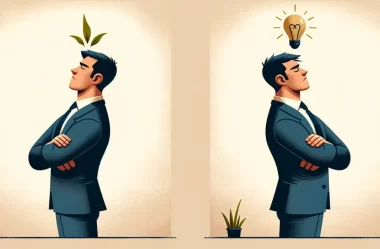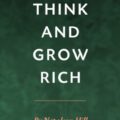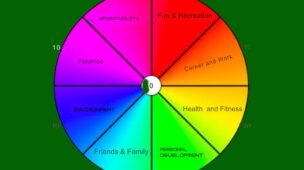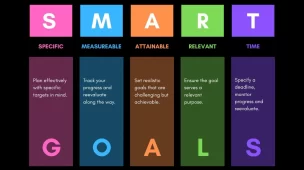Definition of Growth Mindset
In the realm of psychology, a growth mindset refers to a belief system or attitude that is grounded in the notion that one’s abilities and intelligence can be developed and expanded over time through dedication, effort, and persistence. Individuals with a growth mindset perceive challenges as opportunities for growth, rather than insurmountable obstacles.
This mindset fosters a willingness to embrace new experiences, learn from failures, and continuously improve oneself. It is characterized by resilience, curiosity, and a passion for self-improvement.
Importance of Cultivating a Growth Mindset
Cultivating a growth mindset is crucial for personal development and success in various aspects of life. Research has shown that individuals with a growth mindset are more likely to persevere in the face of setbacks, take on challenges with enthusiasm, and ultimately achieve their goals.
By fostering a growth mindset, individuals can unlock their full potential and tap into undiscovered talents and capabilities. This shift in perspective not only enhances one’s motivation and productivity but also nurtures a sense of empowerment and self-belief.
Overview of Limitless Potential
The concept of limitless potential encapsulates the boundless possibilities that unfold when one embraces a growth mindset. Rather than being confined by self-imposed limitations or fixed notions of ability, individuals with a growth mindset understand that their capacity for learning and achievement knows no bounds.
By adopting this expansive outlook on personal development, individuals can break free from the constraints of fear and doubt to reach new heights of creativity, innovation, and success. Limitless potential beckons as an invitation to explore the uncharted territories of one’s capabilities and make meaningful contributions to both personal fulfilment and societal progress.
Understanding the Fixed vs. Growth Mindset
Characteristics of a Fixed Mindset
A fixed mindset is characterized by a belief that one’s abilities and intelligence are static traits that cannot be changed. Individuals with a fixed mindset tend to avoid challenges out of fear of failure, as they see failure as a reflection of their inherent abilities.
They often seek validation and praise to affirm their intelligence, and criticism or setbacks can be deeply unsettling to them. In the face of obstacles, those with a fixed mindset may give up easily, viewing setbacks as evidence of their lack of talent rather than opportunities for growth.
Characteristics of a Growth Mindset
Contrastingly, a growth mindset is defined by the belief that abilities and intelligence can be developed through dedication and hard work. Those with a growth mindset embrace challenges as opportunities for learning and improvement, understanding that failure is not indicative of their capabilities but rather essential for growth.
They actively seek out feedback to enhance their skills and view effort as the pathway to mastery. Individuals with a growth mindset are resilient in the face of setbacks, seeing them as temporary obstacles that can be overcome with perseverance and strategic effort.
Impact on Personal Development and Success
The impact of one’s mindset—whether fixed or growth—extends far beyond just attitude; it influences personal development and success in profound ways. Those with a fixed mindset may plateau in their personal growth journey, unable to reach their full potential due to self-imposed limitations on what they believe they can achieve.
In contrast, individuals with a growth mindset are more likely to embrace challenges, persist in the face of adversity, and ultimately achieve higher levels of success. By viewing failures as stepping stones rather than stumbling blocks, those with a growth mindset continuously push themselves beyond comfort zones and unlock new realms of possibilities in both personal development and professional endeavors.
Benefits of Developing a Growth Mindset
Increased Resilience and Adaptability
Embracing a growth mindset brings about a profound increase in resilience and adaptability. Individuals with a growth mindset view challenges as opportunities for growth rather than insurmountable obstacles.
By believing in their ability to learn and improve, they are better equipped to navigate through setbacks and adversities with grace and perseverance. This resilience allows them to bounce back stronger after facing difficulties, ultimately leading to personal growth and development.
Embracing Challenges and Learning from Failures
One of the most significant advantages of nurturing a growth mindset is the willingness to embrace challenges head-on and derive valuable lessons from failures. Rather than shying away from difficult tasks or setbacks, individuals with a growth mindset see them as chances to stretch their abilities and expand their knowledge. By reframing failures as opportunities for learning rather than signs of inadequacy, they can extract insights that propel them forward on their journey toward success.
Building Confidence and Self-Efficacy
Cultivating a growth mindset not only fosters resilience but also plays a pivotal role in building confidence and self-efficacy. As individuals continuously challenge themselves, learn from mistakes, and witness their own progress over time, they develop a deep sense of belief in their capabilities.
This newfound confidence empowers them to take on new challenges with enthusiasm, knowing that they have the skills and determination to overcome obstacles along the way. Through this process, self-efficacy grows stronger, paving the way for even greater achievements in various aspects of life.
Articles:
The Simple Guide To Positive Affirmations For A Happier Mind
100 Empowered Affirmations for Self-Esteem
The Wheel of Life Coaching Tool
Books:
How to Stop Overthinking by Chase Hill
Embracing the Power of “Yet”
The concept of “yet” embodies the essence of a growth mindset. When faced with challenges or setbacks, reframing your thinking by adding the word “yet” at the end of a statement can shift your perspective from fixed to growth-oriented. For example, instead of saying, “I can’t do this,” you can say, “I can’t do this yet.” By acknowledging that your current limitations are temporary and that growth is possible with effort and perseverance, you open yourself up to new possibilities and opportunities for learning and development.
Embracing the power of “yet” also fosters a sense of resilience and determination. It encourages you to view failures as stepping stones towards success rather than insurmountable obstacles.
By recognizing that skills and abilities can be developed over time through dedication and practice, you adopt a more positive outlook on challenges and setbacks. The power of “yet” lies in its ability to instill hope and motivation, driving you to continue striving for improvement even in the face of adversity.
Practicing Self-Compassion and Positive Self-Talk
Self-compassion is an essential component of cultivating a growth mindset. Instead of being overly critical or judgmental towards oneself when facing difficulties or setbacks, practicing self-compassion involves treating yourself with kindness and understanding.
Recognize that making mistakes is a normal part of learning and that your worth is not solely based on your achievements. By offering yourself compassion in moments of struggle, you build resilience and inner strength to persevere through challenges with grace.
Positive self-talk plays a crucial role in shaping your mindset towards growth and development. The way you speak to yourself internally influences your beliefs about what you are capable of achieving.
By replacing negative self-talk with affirming statements that highlight your strengths, potential, and capacity for growth, you create a supportive inner dialogue that fuels confidence and motivation. Embrace words of encouragement, empowerment, and optimism as tools for nurturing a mindset focused on continuous learning and improvement.
Setting Realistic Goals And Taking Action Steps
Setting realistic goals aligned with your aspirations is fundamental to fostering a growth mindset. When establishing objectives, consider both short-term milestones that provide immediate feedback on progress as well as long-term visions that inspire sustained effort towards personal development. By breaking down larger goals into manageable tasks or action steps, you create a roadmap for success that guides your actions in alignment with your desired outcomes.
Taking action steps towards your goals reinforces the belief that progress is achievable through consistent effort over time. Each small step taken serves as evidence of incremental growth and improvement along the journey towards realizing your full potential.
Embrace challenges as opportunities for learning while staying committed to taking proactive steps that move you closer to fulfilling your aspirations. Through intentional goal-setting coupled with dedicated action-taking habits, you empower yourself to embrace uncertainty confidently while maximizing opportunities for personal growth.
Fear of Failure
The Paralyzing Grip of Fear
Fear of failure is a common obstacle that can hinder the development of a growth mindset. This fear often stems from the deep-rooted belief that making mistakes or falling short will result in negative consequences, such as embarrassment or disappointment.
Individuals trapped in this mindset tend to avoid taking risks or stepping out of their comfort zones, fearing the potential for failure. However, it is essential to recognize that failure is not a reflection of one’s worth but rather an opportunity for growth and learning.
Embracing Failure as a Stepping Stone
To overcome the fear of failure, it is crucial to reframe how we perceive setbacks. Instead of viewing failures as roadblocks, they should be seen as valuable stepping stones on the path to success.
By embracing failure as a natural part of the learning process, individuals can cultivate resilience and develop a growth mindset. Understanding that setbacks provide valuable lessons and feedback can empower individuals to approach challenges with courage and determination.
Cultivating Resilience through Failure
Failure should be embraced as an essential element in personal growth and development. It is through failures that we learn valuable lessons, adapt our strategies, and ultimately grow stronger. Cultivating resilience in the face of failure involves acknowledging our mistakes without self-judgment, seeking constructive feedback, and using setbacks as motivation to improve and strive for excellence.
Imposter Syndrome
The Deceptive Voice Within
Imposter syndrome is another common obstacle that can impede the development of a growth mindset. This psychological phenomenon tricks individuals into believing they are undeserving of their accomplishments or success. The persistent feeling of being a fraud or not measuring up to expectations can create self-doubt and inhibit personal growth.
Redefining Success Beyond Perfection
Overcoming imposter syndrome requires shifting one’s perspective on success and self-worth. Instead of striving for unattainable perfection, individuals must learn to celebrate their achievements and acknowledge their capabilities. By recognizing that everyone experiences moments of doubt and uncertainty, individuals can break free from the grip of imposter syndrome and embrace their unique talents and strengths.
Fostering Self-Compassion Amidst Doubt
Self-compassion plays a vital role in combating imposter syndrome and nurturing a growth mindset. Practising self-kindness and understanding allows individuals to acknowledge their insecurities without being consumed by them. By fostering self-compassion amidst moments of doubt, individuals can build confidence in their abilities, foster authenticity in their pursuits, and cultivate resilience against feelings of inadequacy.
Comparison Trap
The Illusionary Pathway to Discontent
The comparison trap lures individuals into measuring their worth based on external benchmarks such as others’ achievements or societal standards. Constantly comparing oneself to others breeds feelings of inadequacy, envy, or unworthiness – all detrimental to cultivating a growth mindset.
Evolving Beyond Comparative Measures
To escape the comparison trap’s confines requires shifting focus from external comparisons towards internal progress markers instead. Setting personal goals aligned with individual strengths and values rather than societal norms or peer achievements enables genuine personal development unclouded by comparative distractions.
Celebrating Uniqueness amidst Diversity
Ultimately embracing diversity among individual journeys fosters an environment where each person’s unique path towards personal growth shines brightly alongside others’. Recognizing differences instead encourage mutual learning appreciation rather than breeding unhealthy competition moral crushing competitiveness.
Nurturing a Growth Mindset in Different Areas of Life
Professional Development: Thriving in a Growth-Oriented Career
In the realm of professional development, cultivating a growth mindset is crucial for unlocking one’s full potential and achieving success. Individuals with a growth mindset embrace challenges, seek out constructive feedback, and view setbacks as opportunities for learning and growth. By reframing failures as stepping stones to improvement rather than roadblocks to success, professionals can enhance their resilience and adaptability in the face of adversity.
Moreover, those with a growth mindset are more likely to take risks, explore new opportunities, and continuously develop their skills to stay competitive in today’s ever-evolving work landscape. Strategies for nurturing a growth mindset in professional development include setting ambitious yet achievable goals, seeking mentorship from experienced industry leaders, and actively seeking out learning opportunities such as workshops or online courses.
Additionally, maintaining a positive attitude towards challenges and setbacks can help individuals persevere through tough times and emerge stronger on the other side. By fostering a culture of continuous learning and self-improvement within the workplace, organizations can empower their employees to embrace change, innovate creatively, and drive collective growth towards shared goals.
Relationships: Cultivating Growth through Connection
In the realm of relationships—whether personal or professional—cultivating a growth mindset can foster deeper connections built on mutual respect, trust, and support. Individuals with a growth mindset approach interpersonal interactions with an open mind, willingness to listen and learn from others’ perspectives, and genuine empathy towards different viewpoints.
By viewing relationships as dynamic entities that require effort, communication, and compromise to thrive over time, individuals can nurture healthy connections that promote personal development and emotional well-being. Strategies for nurturing a growth mindset in relationships include practicing active listening during conversations to truly understand others’ thoughts and feelings without judgment or preconceived notions.
Additionally, expressing gratitude for others’ contributions or support can strengthen bonds
and foster a sense of appreciation within interpersonal connections. Moreover,
being open to giving and receiving constructive feedback can encourage mutual growth within relationships by addressing areas for improvement openly
and constructively rather than defensively or dismissively.
The Science Behind Growth Mindsets
Neuroplasticity: The Brain’s Remarkable Ability to Change
Neuroplasticity, often referred to as brain plasticity, is the brain’s extraordinary capacity to reorganize itself by forming new neural connections throughout life. This phenomenon challenges the long-held belief that the brain is a static organ once adulthood is reached. Research has shown that our brains have the ability to adapt and rewire in response to learning, experiences, and environmental influences.
When individuals adopt a growth mindset and engage in activities that challenge their cognitive abilities, neuroplasticity comes into play, allowing for the development of new pathways and connections in the brain. This means that with deliberate effort and practice, individuals can enhance their cognitive function and acquire new skills at any age.
The Role of Dopamine in Learning: The Neurotransmitter of Motivation
Dopamine, often referred to as the “feel-good” neurotransmitter, plays a crucial role in reward-motivated behavior and reinforcement learning. When it comes to growth mindsets, dopamine serves as a key player in shaping our motivation and drive to learn. Studies have shown that when individuals experience success or progress towards their goals, dopamine levels increase, reinforcing positive behaviors and creating a sense of satisfaction.
This neurochemical process not only enhances learning but also reinforces the belief that effort leads to achievement. By understanding how dopamine influences our motivation and learning processes, individuals can leverage this neurotransmitter to fuel their growth mindset journey.
Impact on Mental Health: Fostering Resilience Through Growth Mindsets
The impact of growth mindsets on mental health extends beyond cognitive benefits to encompass emotional well-being and resilience. Embracing challenges, viewing setbacks as opportunities for growth, and believing in one’s ability to improve are core tenets of a growth mindset that can promote psychological resilience.
Research has indicated that individuals with growth mindsets exhibit lower levels of stress, anxiety, and depression compared to those with fixed mindsets. By reframing failures as temporary setbacks rather than permanent reflections of one’s abilities or worth, individuals can cultivate greater emotional agility and cope more effectively with life’s inevitable challenges.
In essence, the adoption of a growth mindset not only enhances cognitive abilities but also nurtures mental health by fostering adaptive coping strategies.
Triumph Over Adversity: The Story of Maya
Maya’s journey is a testament to the transformative power of a growth mindset. Growing up in challenging circumstances, Maya faced numerous obstacles that could have easily deterred her from pursuing her dreams.
However, instead of viewing setbacks as failures, Maya embraced them as opportunities for growth. Through perseverance and a positive outlook, she overcame adversity one step at a time.
One pivotal moment in Maya’s story was when she failed to secure admission to her desired college. Instead of giving up, Maya chose to see this setback as a chance to explore different paths and expand her horizons.
She enrolled in online courses, sought mentorship from industry professionals, and honed her skills through practical experience. By reframing failures as learning experiences and staying committed to personal growth, Maya eventually landed her dream job in a competitive field.
Redefining Success: The Journey of Alex
Alex’s story challenges conventional notions of success and showcases the limitless potential unlocked through adopting a growth mindset. Initially driven by external validation and societal expectations, Alex found himself feeling unfulfilled despite achieving traditional markers of success.
It was only when he shifted his focus from external accolades to internal growth that his life took on new meaning. Through introspection and self-discovery, Alex embarked on a journey of personal development guided by the principles of a growth mindset.
He began setting goals aligned with his values rather than societal norms, prioritizing learning experiences over immediate outcomes. As he cultivated resilience in the face of challenges and embraced continuous improvement, Alex found greater satisfaction and fulfillment in both his professional endeavors and personal relationships.
From Self-Doubt to Self-Actualization: The Evolution of Sarah
Sarah’s evolution from self-doubt to self-actualization exemplifies the profound impact that embracing a growth mindset can have on one’s life trajectory. Plagued by imposter syndrome and perfectionism for years, Sarah struggled to recognize her own worth and capabilities.
However, through introspection and intentional mindset shifts, she began dismantling limiting beliefs that had held her back for so long. By reframing failures as opportunities for learning and feedback rather than reflections of inadequacy, Sarah started taking bolder risks in both her personal and professional pursuits.
As she cultivated self-compassion and adopted a growth-oriented approach to challenges, Sarah experienced exponential personal growth and self-actualization. Today, Sarah serves as an inspiration for others seeking to break free from self-imposed limitations and unlock their full potential through the power of a growth mindset.
Conclusion
Summary of Key Points: Embracing the Power Within
In this comprehensive exploration of cultivating a growth mindset, we have delved into the transformative power of shifting from a fixed to a growth-oriented perspective. By understanding the defining characteristics of each mindset and the profound impact they have on personal development and success, we have unlocked the key to unlocking our limitless potential. Through embracing challenges, learning from failures, and nurturing resilience and adaptability, individuals can pave their way towards continuous growth and self-improvement.
Encouragement to Start Cultivating Your Own Growth Mindset Today: Seeds of Change
As we conclude this enlightening journey into the realm of growth mindsets, I urge you, dear reader, to take that first step towards cultivating your own growth mindset today. Remember that change begins with a single thought and action; by embracing the power of “yet,” practicing self-compassion, setting realistic goals, and taking intentional steps towards personal development, you are sowing seeds of positive change within yourself.
Embrace challenges as opportunities for growth, learn from setbacks as stepping stones towards success, and believe in your ability to achieve greatness through continuous learning and self-improvement. Let us embrace the optimism that comes with adopting a growth mindset – for it is in our willingness to evolve, learn from mistakes, and strive for progress that we truly unlock our boundless potential.
The journey towards personal growth may not always be easy or linear but remember that every challenge conquered is a stepping stone towards becoming the best version of yourself. So go forth with courage and determination; start today on your path to cultivating a growth mindset that will open doors to limitless possibilities and lead you towards a future filled with success and fulfillment.











